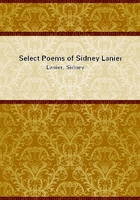
第63章 CHAP. XIX.(8)
Sec. 239. In these cases Barclay, the great champion of absolute monarchy, is forced to allow, that a king may be resisted, and ceases to be a king. That is, in short, not to multiply cases, in whatsoever he has no authority, there he is no king, and may be resisted: for wheresoever the authority ceases, the king ceases too, and becomes like other men who have no authority. And these two cases he instances in, differ little from those above mentioned, to be destructive to governments, only that he has omitted the principle from which his doctrine flows: and that is, the breach of trust, in not preserving the form of government agreed on, and in not intending the end of government itself, which is the public good and preservation of property. When a king has dethroned himself, and put himself in a state of war with his people, what shall hinder them from prosecuting him who is no king, as they would any other man, who has put himself into a state of war with them, Barclay, and those of his opinion, would do well to tell us. This farther I desire may be taken notice of out of Barclay, that he says, The mischief that is designed them, the people may prevent before it be clone:
whereby he allows resistance when tyranny is but in design. Such designs as these (says he) when any king harbours in his thoughts and seriously promotes, he immediately gives up all care and thought of the common-wealth; so that, according to him, the neglect of the public good is to be taken as an evidence of such design, or at least for a sufficient cause of resistance. And the reason of all, he gives in these words, Because he betrayed or forced his people, whose liberty he ought carefully to have preserved. What he adds, into the power and dominion of a foreign nation, signifies nothing, the fault and forfeiture lying in the loss of their liberty, which he ought to have preserved, and not in any distinction of the persons to whose dominion they were subjected. The peoples right is equally invaded, and their liberty lost, whether they are made slaves to any of their own, or a foreign nation; and in this lies the injury, and against this only have they the right of defence. And there are instances to be found in all countries, which shew, that it is not the change of nations in the persons of their governors, but the change of government, that gives the offence. Bilson, a bishop of our church, and a great stickler for the power and prerogative of princes, does, if I mistake not, in his treatise of Christian subjection, acknowledge, that princes may forfeit their power, and their title to the obedience of their subjects;and if there needed authority in a case where reason is so plain, I could send my reader to Bracton, Fortescue, and the author of the Mirrour, and others, writers that cannot be suspected to be ignorant of our government, or enemies to it. But I thought Hooker alone might be enough to satisfy those men, who relying on him for their ecclesiastical polity, are by a strange fate carried to deny those principles upon which he builds it.